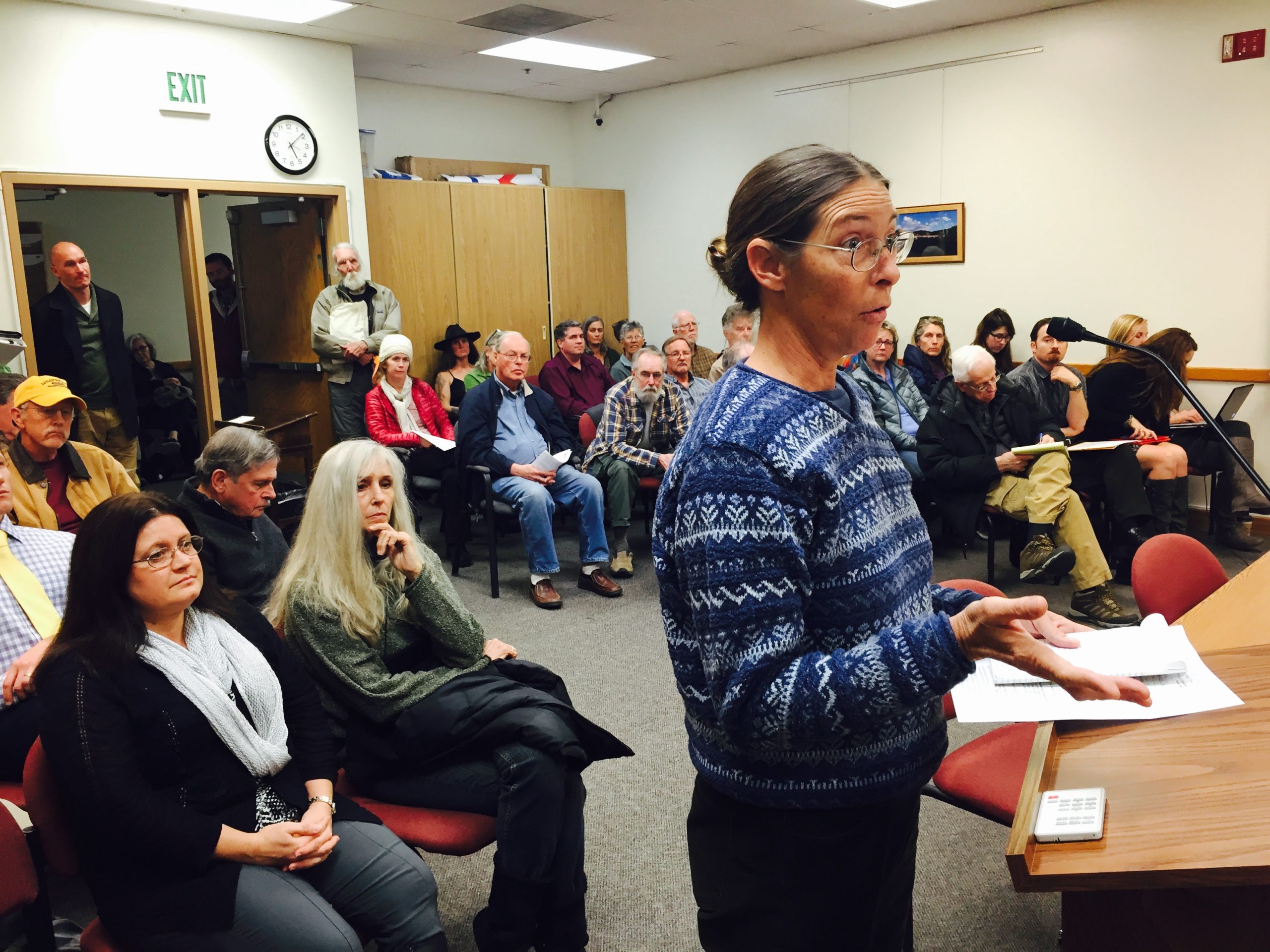Some information may be outdated.
The Six County Infrastructure Coalition won’t need to add one more member’s name to its old letterhead.
By a 5-2 vote on Jan. 6, the Grand County Council rescinded the previous council’s October 2014 resolution to join the regional coalition; Lynn Jackson and Rory Paxman opposed Mary Mullen McGann’s motion.
The item was the first one that McGann – who defeated incumbent Councilman Jim Nyland in last November’s general election – brought to the council. County voters also swept Chris Baird and Jaylyn Hawks into office by significant margins on Election Day, and McGann saw the results as a referendum against the prior council’s actions.
“I feel that the election was a resounding statement that the people of this county do not want to be a part of this coalition,” she said. “Our job as representative government and as representatives is to enact the will of the people.”
Jackson and other coalition supporters said the organization was set up to develop roads, rail lines, airport facilities and water and sewer projects across eastern Utah. They also believe it will give the region more clout at the state and national levels.
But Moab-area critics feared the new entity would usurp local control over potentially controversial infrastructure projects within the county’s borders. In addition, they voiced concerns that the coalition’s projects would only benefit tar sands, oil shale projects in the Book Cliffs north of Interstate 70, along with conventional oil and gas projects elsewhere around the region.
Moab resident Dave McLean said he doesn’t see any need to invest in paved roads, hydrocarbon pipelines or a law enforcement substation in the rugged and wildlife-rich area, given the continued plunge in oil prices.
“I think there is absolutely no pressing need right now to have any additional infrastructure on the Grand County portion of the Book Cliffs,” McLean said.
McLean asked everyone in the room to look around the council chambers, where the walls are decorated with framed photographs of scenic attractions at Arches and Canyonlands national parks. Pictures of tar sands mines or evaporation pits are nowhere to be seen, he noted, adding that the county should not support a “greedy industry” that wants the public to subsidize its operations.
County resident Deb Walter noted that regional boosters of a proposed Book Cliffs road recently touted the planned route as a “national parks highway,” when oil and gas development in the Uintah Basin was the driving force behind the idea.
Walter said she saw that kind of “greenwashing”as an insult to Grand County, which serves as the home base for visitors to Arches and Canyonlands and has a thriving tourist economy.
Jackson said he supports the county’s tourist base. But he added that he thinks it’s “incredibly short-sighted” to rely on a single industry.
“All along, I’ve felt that we needed to diversify wherever we can,” Jackson said.
He agreed that changing oil prices will affect plans to develop infrastructure that would serve the Uintah Basin’s oil and gas industry.
“Certainly, the price of oil is going to have a significant impact on whether they do any projects related to hydrocarbons,” he said, noting that a proposed rail line from the Uintah Basin to Carbon County is dead for the time being.
On other issues, however, Jackson said he believes that coalition opponents spread misinformation about the coalition’s goals.
He said that the coalition was designed to boost regional economic activity, noting that it could generate new revenue by charging tolls on any companies that transport hydrocarbons to market via coalition-built roads or pipelines.
“That was lost in the three-ring circus that prevailed after that,” he said.
Despite the previous council’s vote to join the coalition, Grand County never became a formal member of the group.
According to Jackson, the six other counties held off on ratifying Grand’s membership at his request. Coalition members were also receptive to suggested changes to the governing agreement, which were drafted to address local residents’ concerns about county sovereignty, according to Jackson.
Baird said that Jackson’s efforts are appreciated. However, he indicated that would not feel comfortable with the idea of Grand County’s involvement in the new entity without additional changes to the coalition’s governing document.
“With the agreement as it stands now, I would never be in favor of joining this coalition,” Baird said.
Councilman Ken Ballantyne, who voted in favor of the Oct. 21 resolution, reversed course on Jan. 6.
Ballantyne said he supported the original resolution because he wanted to work with Grand County’s neighbors on infrastructure projects that could benefit the region. Frankly, he said, he doesn’t care about Uintah County’s oil.
“(The vote) had nothing to do with oil; it had nothing to do with hydrocarbons,” he said.
New council chair Elizabeth Tubbs, who participated in the Jan. 6 meeting via conference call, had been the previous council’s lone voice against county involvement in the coalition.
Tubbs reiterated her belief that Grand County has nothing to gain from the coalition, but having said that, she cut her remarks short.
“I think a lot has been said, and I don’t think I need to add to any of it,” she said.
Ballantyne joins Tubbs, new members to rescind prior council’s vote on controversial infrastructure alliance
“I feel that the election was a resounding statement that the people of this county do not want to be a part of this coalition … Our job as representative government and as representatives is to enact the will of the people.”
Appreciate the coverage? Help keep local news alive.
Chip in to support the Moab Sun News.





